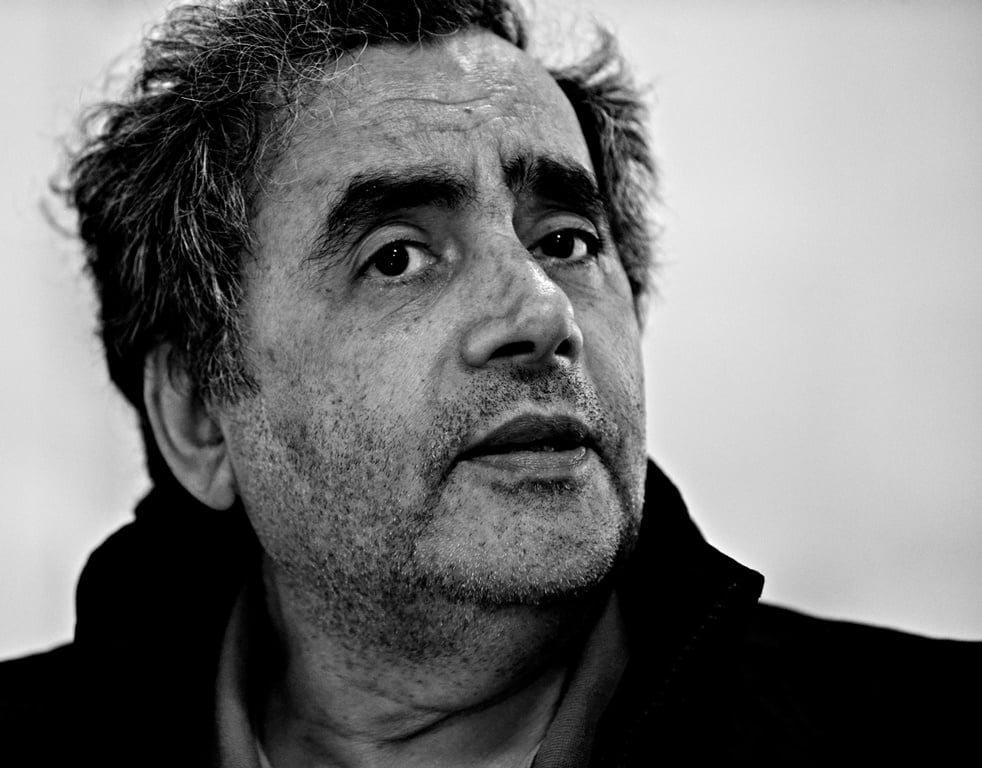
Habib Tengour
- Algeria
- Zu Gast beim ilb: 2017
Habib Tengour is an Algerian poet, sociologist and anthropologist born in Mostaganem, Algeria in 1947. In 1959, he moved with his family to France after his father, a nationalist militant of the PPA, was forced to flee from police persecution. Tengour went on to study sociology in France and after his mastery, he completed his military service from 1972 to 1974 and was called at that time to become the first director of the newly founded Institute of Social Sciences at the Université Constantine.
In his debut prose novel »Tapapakitaques. La poésie-île« (1976; tr. Tapapakitaques. The island of poetry), Tengour developed a style of writing that oscillates between surrealism and the traditions of Arabic poetry while also mixing a documentary style with history and myth. Looking back to past epochs, he confers attributes taken from his own biography upon well-known figures, such as Ulyssees, Nestor, Éluard and Hikmet. In the 1980s, Tengour expanded his work to form a tetralogy of novels with the titles »Le vieux de la montagne« (1983; tr. The Old Man of the Mountain), »Sultan Galièv ou la rupture de stocks« (1985; tr. Sultan Galiev or out of stock) and »L’épreuve de l’arc« (1990, Eng. »The Trial of the Bow«, 1993). As one of the most important authors of the new generation of North African writers, he also engaged in a critique of modern Algeria and condemned fundamentalism in particular: In »Le vieux de la montagne« he reflected upon the religious fanaticism of the present day in the context of the Assassin Movement of the Middle Ages. In »Sultan Galièv ou la rupture de stocks« he expressed criticism of Algerian politics via an examination of the Russian Revolution of 1917. The figures in many of his texts are travelers between worlds and epochs; they are an expression of the biographies of several generations of migrants, and in particular those of the Maghreb: »While there is indeed a clearly defined space called Maghreb, Maghrebis are always somewhere else. Only somewhere else can they realize themselves«. And, finally, his novel »Le poisson de Moïse« (2001; tr. The fish of Moses) is an examination of Islamism and violence. Tengour tells the story of three young Algerians who fight against the Soviets in Afghanistan and then, soon after the Soviets withdraw, join the Mujahidin – each for a different reason – to fight in another war. In 2009, a dual French-German edition of his poems written between 1981 and 2003 was published under the name »Seelenperlmutt«. It shows Tengour as a political author devoted to social cohesion, civil war, emigration and exile, among other themes, but also as a gentle voice in deep reflection on the lyrical subject. 2017 his Mediterranean migration poem »Traverser« will be published in a bilingual German-French edition.
Tengour received the Prix de l’Afrique méditerranéenne/Maghreb and the Dante Prize for his entire poetic work. He lives in Paris and Constantine and is a currently a guest of the DAAD Artists-in-Berlin Program.
Le vieux de la montagne
Sindbad
Paris, 1983
Neuauflage:
Le vieux de la montagne
suivi de: Nuit avec Hassan
La Différence
Paris, 2008
dt. in Auszügen:
Der Untergang des Morgenlandes
Wuqûf 6/1991
[Ü: Regina Keil]
Die Bogenprobe
Beck & Glückler
Freiburg, 1993
[Ü: Regina Keil]
Der Fisch des Moses
Haymon
Innsbruck, 2004
[Ü: Regina Keil-Sagawe]
Le Maître de l’Heure
La Différence
Paris, 2008
Seelenperlmutt
Lyrik
Französisch-deutsch
Hans Schiler
Berlin, 2009
[Ü: Regina Keil-Sagawe]
